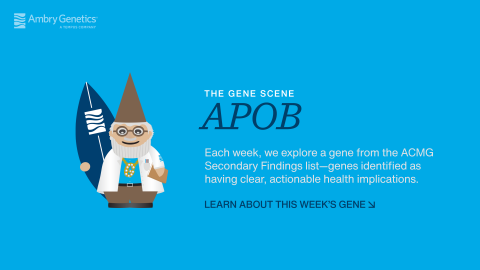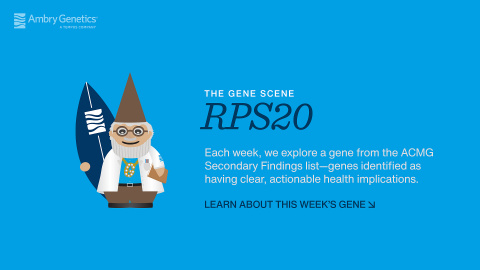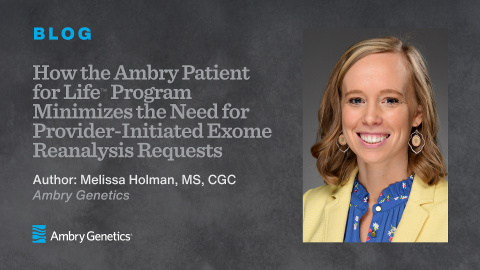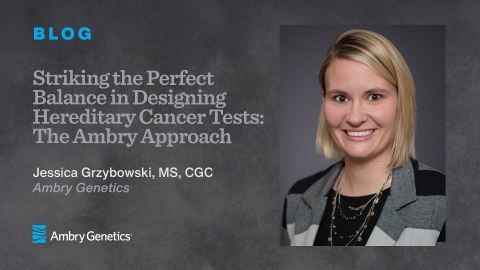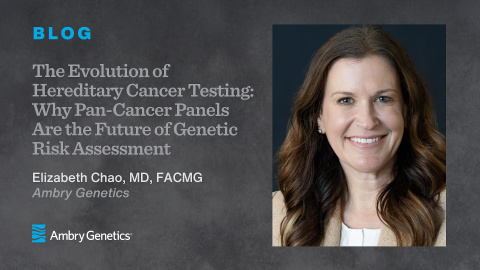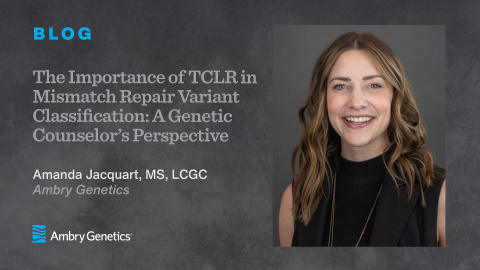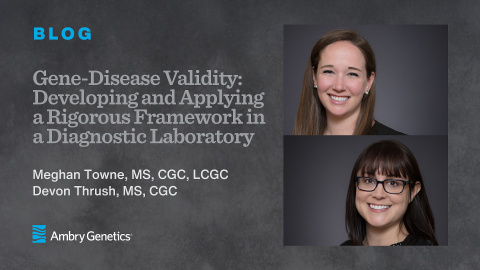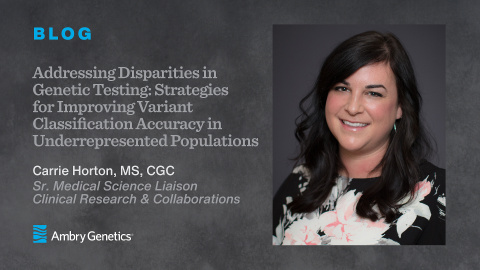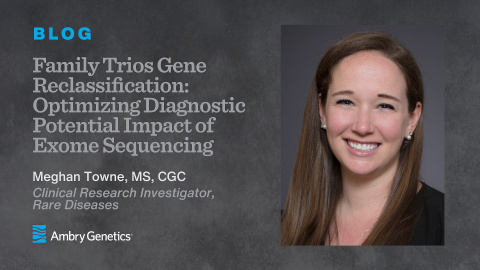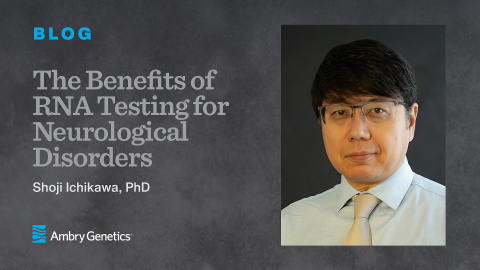- By Haley Streff, MS, CGC
- Posted January 20, 2026
The Gene Scene: APOB
Welcome to the Gene Scene! Each week, we will explore a gene from the ACMG Secondary Findings list—genes identified by the American College of Medical Genetics and Genomics as having clear, actionable health implications. These genes are included because they’re linked to serious but preventable or manageable conditions when identified early.…
- By Catherine Mayo, MS, CGC
- Posted September 2, 2025
The Gene Scene: RPS20
Welcome to the Gene Scene! Each week, we will explore a gene from the ACMG Secondary Findings list—genes identified by the American College of Medical Genetics and Genomics as having clear, actionable health implications. These genes are included because they’re linked to serious but preventable or manageable conditions when identified…
- By Melissa Holman, MS, CGC
- Posted November 15, 2024
How the Ambry Patient for Life™ Program Minimizes the Need for Provider-Initiated Exome Reanalysis Requests
Understanding Exome Reanalysis Exome reanalysis is a process that involves assessing all 20,000 of a patient's genes, despite only having a concrete understanding of the functions of around 5,000 to 6,000. However, the gap in this understanding is rapidly closing. Scientific research characterizes approximately one new gene every two days. Therefore,…
- By Jessica Grzybowski, MS, CGC
- Posted October 31, 2024
Striking the Perfect Balance in Designing Hereditary Cancer Tests: The Ambry Approach
In the fast-moving world of genetic testing, designing and updating a hereditary cancer portfolio and each test it includes is a balancing act. It’s about making sure we include genes that matter clinically while steering clear of those with uncertain links to cancer. At Ambry, we’ve perfected this balancing act by sticking to a process rooted…
- By Elizabeth Chao, MD, FACMG
- Posted October 17, 2024
The Evolution of Hereditary Cancer Testing: Why Pan-Cancer Panels Are the Future of Genetic Risk Assessment
Hereditary cancer testing has changed dramatically over the past decade, reshaping how healthcare professionals diagnose and manage genetic risks. Initially, testing focused on specific genes like BRCA1 and BRCA2, linked to breast and ovarian cancers. These gene tests were quite limited, only looking at a small set of mutations…
- By Amanda Jacquart, MS, LCGC
- Posted July 31, 2024
The Importance of TCLR in Mismatch Repair Variant Classification: A Genetic Counselor’s Perspective
In the field of genetic counseling and testing, the stories of patients and the healthcare professionals who guide them through their journeys are as compelling as they are educational. Recently, I had the privilege of working with Alyssa Valentine, MS, CGC, a senior genetic counselor at Cook County Health in Chicago, Illinois. In her role in a…
- By Meghan Towne, MS, CGC, LCGC
- Posted May 2, 2024
Gene-Disease Validity: Developing and Applying a Rigorous Framework in a Diagnostic Laboratory Setting
Our understanding of genes and diseases is constantly evolving. At Ambry Genetics, we develop and continuously refine our testing services based on the ever-expanding body of scientific evidence. The process of assessing the relationship between a gene and a disease is called gene-disease validity (GDV) scoring and is fundamental to genetic testing.…
- By Carrie Horton, MS, CGC
- Posted April 29, 2024
Addressing Disparities in Genetic Testing: Strategies for Improving Variant Classification Accuracy in Underrepresented Populations
Genetic testing has emerged as a powerful tool in personalized medicine, offering insights into individual health risks, disease predispositions, and treatment options. However, its effectiveness relies on the accuracy of the results. We know that individuals from non-White populations receive less informative genetic testing results compared to…
- By Meghan Towne, MS, CGC, LCGC
- Posted April 2, 2024
Family Trios Gene Reclassification: Optimizing Diagnostic Potential Impact of Exome Sequencing
The ability of exome sequencing (ES) to detect variants across the genetic code makes it a powerful diagnostic tool, reducing the number of tests and time to diagnose patients with rare disorders. However, with this broad detection range comes the challenge of identifying which of hundreds or thousands of rare variants may be clinically meaningful…
- By Shoji Ichikawa, PhD
- Posted March 19, 2024
The Benefits of RNA Testing for Neurological Disorders
Introduction Clinical genetic testing is a powerful diagnostic tool for neurological disorders. The utility of genetic testing can be diminished by the large number of variants of uncertain significance (VUS). Variant classification for neurological disorders has additional challenges because clinical evidence is often limited. The biggest limitation…
